Orthodontic Appliances
Most orthodontic appliances are used during Phase 1 orthodontics, also known as interceptive orthodontics. At Mariana Orthodontics in Monroe, WA, we use orthodontic appliances when necessary to make braces work better and more efficiently, either before, during, or after treatment.
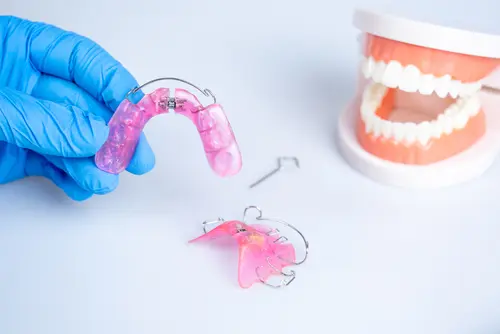
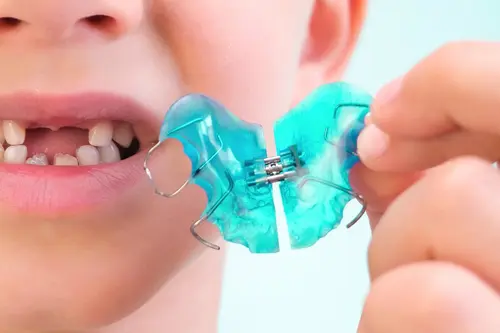
Common Orthodontic Appliances for Kids
The early stage of orthodontic intervention is intended for mostly elementary-aged children to address their bite and alignment before full braces or Invisalign treatment begins. Orthodontic appliances are partial braces are often used at this time, which is why you might see plenty of little kids running around with hardware on their teeth.
Palatal Expander
A palatal expander actively moves the top palate apart over three to six weeks but stays in place for up to 12 months. This appliance is used while the palate is malleable to widen the upper jaw, improve breathing, and help back teeth fit together. Crowding is minimized and there is room for permanent teeth to erupt.
The expander creates space between the front teeth, and brackets and wires close the gaps and move teeth into proper locations. Once the entire treatment is complete, a retainer is used to keep teeth where they belong until all baby teeth have been lost and it’s time for a course of full orthodontics.
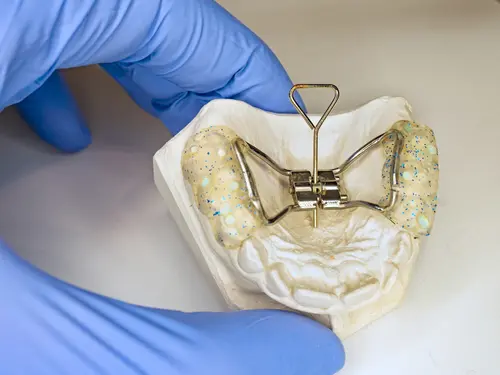
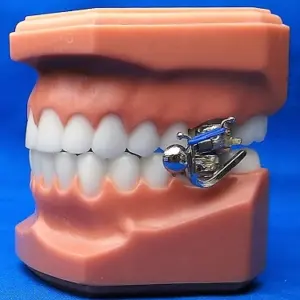
MARA Appliance
A fixed appliance that moves the lower jaw forward so top and bottom teeth meet, the MARA appliance is often used for a severe overbite. Its presence can eliminate the need for oral surgery and address problems like a narrow smile or protruding teeth. The MARA is often in place for up to 15 months and is followed by or accompanied by treatment with conventional braces.
Carriere Distalizer
The Carriere Distalizer is an orthodontic appliance designed to push the upper teeth into the right position without using major headgear. This subtle device uses a small bar bonded to two teeth and powered by an elastic to shift the molars back, a kind of internal headgear. This appliance is used before braces or Invisalign, usually for around six months, and it corrects the bite before straightening of the teeth begins. This effort can shorten orthodontic treatment.
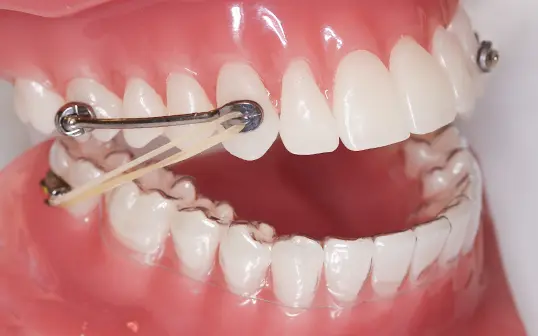
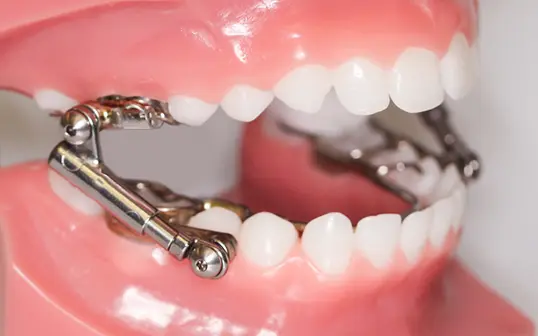
Herbst Appliance
The Herbst appliance focuses on the lower jaw, moving it forward into alignment with the upper jaw using gentle force. This compact appliance is attached to two molars on each side of the mouth and fits discreetly inside the cheeks. Many patients have a Herbst appliance while they wear full braces. A motivating side effect of the Herbst is that, when it is bonded in place, it instantly shifts the lower jaw forward which looks amazing and transforms the facial balance of someone with an overbite.
Retainers
Retainers are one of the only orthodontic appliances worn after braces or Invisalign treatment. No one loves the idea of having an appliance after months and years with brackets, wires, or aligners, but retainers are a critical, non-negotiable part of orthodontic treatment.
Every patient is fitted with a customized retainer after treatment is complete. Teeth may have moved into alignment but, to keep them there, a retainer is necessary. Some patients need their retainer 24/7 at the start, others will only need it at bedtime. There are also people who qualify for permanent retainers behind their teeth.
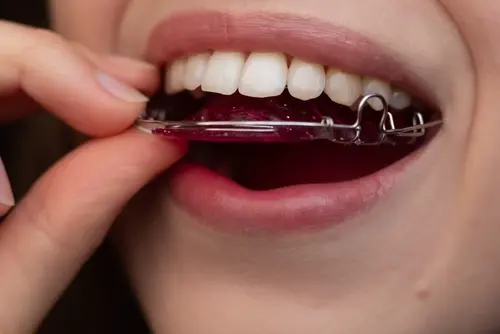
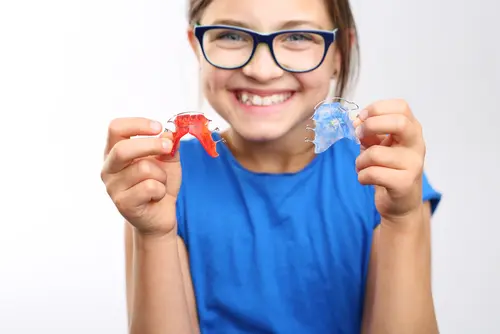
Does Your Child Need an Orthodontic Appliance?
The goals for using orthodontic appliances are to support the road to a straight and healthy smile, minimize overall treatment time, and improve results. At Mariana Orthodontics, we carefully review each patient’s mouth before developing an orthodontic plan and making recommendations. Contact us today to schedule a consultation and find out how we can help your child achieve a beautiful smile.



